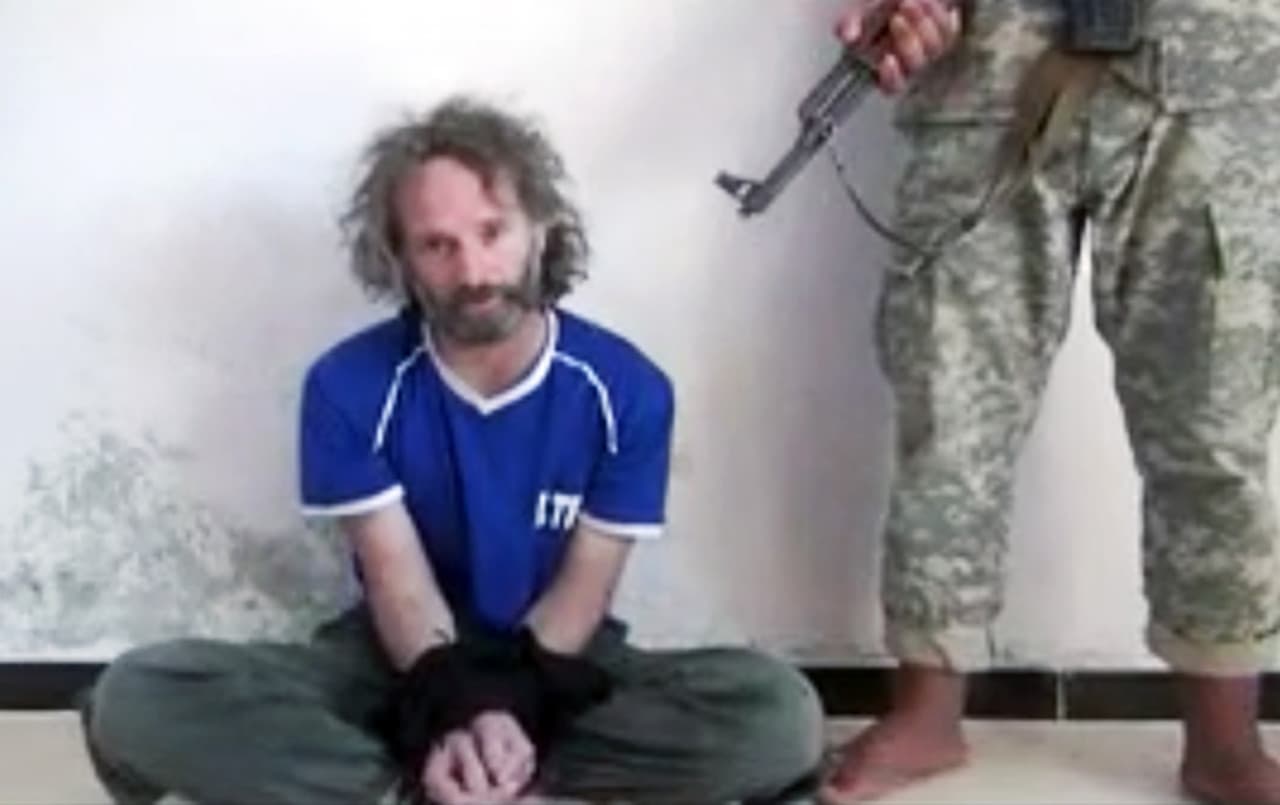Advertisement
Former Hostage Theo Padnos Speaks About Recent ISIS Slaying
ResumeWorld leaders are condemning the brutal burning death of a Jordanian pilot by ISIS militants.

News of such acts have particular resonance for Theo Padnos. The American journalist went to Yemen in 2004 to study Arabic and ended up studying Islam as well as the young men seduced by a violent interpretation of it.
He later got an up-close look at violent extremism when he was taken hostage in Syria by the al-Qaida affiliate al-Nusra Front. He was released last August after two years in captivity. Padnos wrote about his experiences in the New York Times Magazine in October, and Here & Now's Robin Young interviewed his mother, Nany Curtis, in her home last November.
Today, Theo speaks about Yemen, Syria and the cruelty carried out in the name of Islam.
- Previous story: An interview with Theo's mother, Nancy Curtis
- Related story: "The End Of Line In Yemen" by Theo Curtis
Interview Highlights
On the recent ISIS execution
"I have a hard time expressing my feelings about it to be honest. I sympathize for the victims, what can I tell you, and I'm afraid for the rest of us. The same thing with the Charlie Hebdo here in Paris, it is just terrifying what Islam is encouraging people to do. You can say radical Islam if you want, but I can tell you that as a prisoner in a jail, they certainty use textual license in the Quran to kill the non-believers, and that is what they are doing."
"I didn't think I would come back. I really was persuaded that the things I was seeing I would never be able to tell to anybody."
On radical Islam
"Our question really about this kind of Islam is how do young men find themselves seduced into it...what is the beauty of it because nobody could be attracted to a murderous ideology simply because its murder. One does not grow up wishing to be a killer. Reciting the Quran is a beautiful exercise perhaps especially when your friends and neighbors are being killed. The Quran has so much meaning to convey to people who are under that kind of stress."
On being held captive and staying in touch with his captors
"I didn't think I would come back. I really was persuaded that the things I was seeing I would never be able to tell to anybody, but they let me go, so I am in a position now to share what I learned. Some of it is known, but a lot of it isn't, you know, a lot of the society that they're building. I lived in it for two years everyday and I still am in contact with the people...some of the people in Jabhat al-Nusra. Maybe I shouldn't go into this, but I'm interested in understanding how their lives are developing. These guys, you know, they took care of me, among other things, they saved me from being killed. We could have been killed by Daesh (ISIS). We could have been killed by the Syrian Air Force."

"When the Jabhat al-Nusra guys took me outside of the jail, sometimes they did in Deir Ezzor. They would say, 'the ISIS guys who are in jail with you, they're so bad, they're so horrible, you know, they're extremists.' And then, they would put me back in the jail, and they would close the door, and they would go away, and I would be alone with the ISIS guys. And the ISIS guys would say, 'the Jabhat al-Nusra guys, they're so bad, they're extremist.' You know, what are you gonna to do. They don't like each other, but I don't think one group is necessarily more murderess or more horrible than the other, they both enjoy killing."
"If you were to hang out with these people in a room and you didn't know that one person was ISIS and one person was Jabhat al-Nusra, there is no way you would be able to tell based on the way they express themselves."
On U.S.-Syria relations
"I think what needs to happen is we need to partner with the Assad regime. I think we need to encourage them to conduct themselves in a more civilized way. They have been dealing with this for decades, they have all the connections. To dismantle the Assad regime would put the entire religious group of the President in mortal jeopardy, risking a genocide...These people have committed war crimes and yet they are our best hope I believe for putting this castellated country back together again."
Guest
- Theo Padnos, author of Undercover Muslim: A Journey Into Yemen and My Captivity: Theo Padnos, American Journalist, on Being Kidnapped, Tortured and Released in Syria. He was held captive by an al Qaeda affiliate for two years before being released last August. He tweets @TheoPadnos.
This segment aired on February 4, 2015.